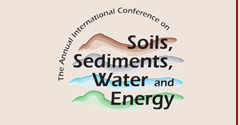Article Title
Abstract
Bioremediation is one of the most cost-effective and environmentally friendly methods to remediate many different types of waste materials widely used by many private and public entities. Although the parameters that affect the rate of bioremediation differ for each project, some parameters can be more easily controlled in the field than others. For example, effective microbial action is crucial to the success of bioremediation. However, microbes can be detrimentally affected by an initial contaminant concentration that is too high. In addition, the type of bulking agent or aggregate used affects the ability of the mixture to retain moisture, the amount of drainage, aeration and ultimately the length of time for biodegradation. A two-month field study was conducted in Trinidad and Tobago on crude oil contaminated waste. This paper will look at the effect of two parameters, initial concentration and type of bulking agent, on the rate of biodegradation of Total Petroleum Hydrocarbons (TPH) in the oily waste being treated in this tropical environment. A nutrient-supplying bioremediation agent was used to enhance the bioremediation process. The results of this study can assist in the design of effective bioremediation projects in tropical environments.
Recommended Citation
Boodoosingh, Ramona; Swan, Christopher; Desmarais, Anne Marie; and Beckles, Denise M.
(2010)
"The Effect Of Bulking Agent And Initial Contaminant Concentration On The Biodegradation Of Total Petroleum Hydrocarbons,"
Proceedings of the Annual International Conference on Soils, Sediments, Water and Energy: Vol. 12, Article 23.
Available at:
https://scholarworks.umass.edu/soilsproceedings/vol12/iss1/23
